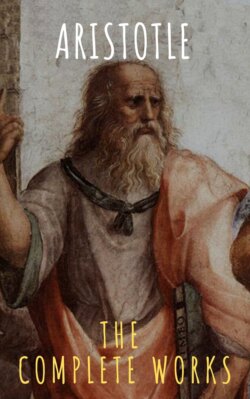Читать книгу Aristotle: The Complete Works - Aristotle - Страница 73
На сайте Литреса книга снята с продажи.
41
ОглавлениеIt is not the same, either in fact or in speech, that A belongs to all of that to which B belongs, and that A belongs to all of that to all of which B belongs: for nothing prevents B from belonging to C, though not to all C: e.g. let B stand for beautiful, and C for white. If beauty belongs to something white, it is true to say that beauty belongs to that which is white; but not perhaps to everything that is white. If then A belongs to B, but not to everything of which B is predicated, then whether B belongs to all C or merely belongs to C, it is not necessary that A should belong, I do not say to all C, but even to C at all. But if A belongs to everything of which B is truly stated, it will follow that A can be said of all of that of all of which B is said. If however A is said of that of all of which B may be said, nothing prevents B belonging to C, and yet A not belonging to all C or to any C at all. If then we take three terms it is clear that the expression ‘A is said of all of which B is said’ means this, ‘A is said of all the things of which B is said’. And if B is said of all of a third term, so also is A: but if B is not said of all of the third term, there is no necessity that A should be said of all of it.
We must not suppose that something absurd results through setting out the terms: for we do not use the existence of this particular thing, but imitate the geometrician who says that ‘this line a foot long’ or ‘this straight line’ or ‘this line without breadth’ exists although it does not, but does not use the diagrams in the sense that he reasons from them. For in general, if two things are not related as whole to part and part to whole, the prover does not prove from them, and so no syllogism a is formed. We (I mean the learner) use the process of setting out terms like perception by sense, not as though it were impossible to demonstrate without these illustrative terms, as it is to demonstrate without the premisses of the syllogism.
